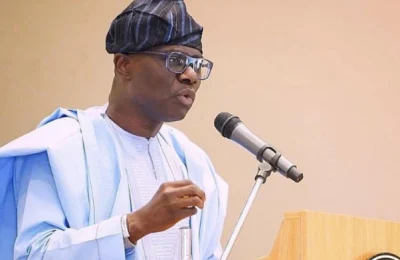NIGERIA, often referred to as the “Giant of Africa,” faces a persistent and crippling challenge: an unreliable power supply. Despite its immense natural resources, including vast reserves of gas and renewable energy potential, over 85 million Nigerians—about 43% of the population—still lack access to electricity. Businesses lose an estimated $29 billion annually due to power outages, according to the World Bank. This energy crisis stifles economic growth, disrupts daily life, and increases reliance on costly and polluting diesel generators. Fortunately, technology is emerging as a key solution to Nigeria’s power supply crisis. From renewable energy innovations to smart grids and energy storage, technological advancements offer practical, scalable, and sustainable solutions to the country’s energy woes. Nigeria is blessed with abundant renewable energy resources: solar, wind, hydro, and biomass. These alternatives present an opportunity to diversify the energy mix and reduce dependence on unreliable fossil fuel-based grids.
Solar Power: Nigeria’s location near the equator gives it an average of 5-7 hours of daily sunlight, making solar energy a viable and abundant resource. Companies like Lumos, Arnergy, and Husk Power Systems are already deploying solar mini-grids and solar home systems in rural communities where grid access is limited. The Nigerian Rural Electrification Agency (REA) reports that over 200,000 homes and businesses now benefit from solar power solutions. Hydropower: With Kainji, Shiroro, and Jebba dams, hydropower already contributes about 20% of Nigeria’s electricity supply. Modernising existing hydropower plants with better technology can increase efficiency and output. Small-scale hydro solutions also have the potential to provide localised, off-grid power for communities near rivers. Wind and Biomass: Though underutilised, Nigeria’s northern states have significant wind potential, while agricultural waste can be converted into bioenergy for rural power generation. Technologies like anaerobic digesters are beginning to turn organic waste into usable energy, reducing pollution and producing power simultaneously. Nigeria’s power grid infrastructure is outdated, inefficient, and plagued by losses during generation, transmission, and distribution. Smart grid technology is a game-changing innovation that can modernise the energy sector and ensure a more reliable power supply.
Improved Monitoring and Control: Smart grids use sensors, IoT (Internet of Things), and advanced analytics to monitor the electricity grid in real time. These tools detect faults, isolate them, and restore power efficiently, reducing downtime. Minimising Energy Loss: In Nigeria, transmission and distribution losses account for over 15% of generated power. Smart meters and energy management systems can track energy usage and identify leakages, ensuring more efficient delivery of electricity to homes and businesses. Demand Response: With smart grid systems, power providers can balance supply and demand effectively, avoiding grid overloads. For instance, industries can shift high-energy activities to off-peak hours, reducing strain on the grid and promoting stability.
Countries like India and Kenya have already begun adopting smart grid solutions with great success, proving that similar technology can be implemented in Nigeria to solve systemic inefficiencies. One of Nigeria’s biggest challenges is inconsistent electricity generation, often caused by natural gas shortages, grid failures, or seasonal drops in hydropower production. Energy storage technologies like batteries and micro-grids can store excess power during peak generation periods and release it when needed. Lithium-Ion Batteries: Solar companies in Nigeria are increasingly integrating lithium-ion batteries to store solar energy for use at night or during blackouts. For example, Arnergy’s solar-plus-storage systems enable small businesses to operate uninterrupted despite unreliable grid supply. Community Micro-grids: Small-scale energy grids powered by solar or hybrid solutions can provide electricity to isolated rural communities, completely bypassing the national grid. These micro-grids are more resilient, affordable, and easy to maintain.
A shift toward energy storage not only improves reliability but also reduces Nigeria’s dependence on noisy and expensive diesel generators. The adoption of technology-driven energy solutions often faces financial barriers. However, innovative financing models are enabling more Nigerians to access clean, reliable power. Pay-As-You-Go (PAYG) Models: Companies like Lumos and M-KOPA are using mobile payment platforms to offer affordable, off-grid solar solutions. Customers pay in small installments, making solar energy accessible to low-income households. Crowdfunding Platforms: Startups are leveraging technology to raise funds for renewable energy projects. Platforms like CrowdyVest allow individuals to invest in solar or wind energy initiatives, providing both social and financial returns. Government Initiatives: Programs like the Nigeria Electrification Project (NEP) are leveraging international funding to deploy off-grid technologies in underserved areas. While technology presents solutions, Nigeria must address policy bottlenecks and infrastructure challenges to ensure the full adoption of these innovations. Key actions include:
Strengthening Regulations: Implementing clear and consistent policies to encourage private sector investment in renewable energy. Upgrading Infrastructure: Replacing aging transmission lines, transformers, and substations to reduce technical losses. Public-Private Partnerships (PPPs): Encouraging collaborations between the government, tech innovators, and investors to fund energy solutions and scale renewable projects. Nigeria’s power supply crisis is not an unsolvable problem. With the right technological solutions—from solar and smart grids to energy storage and digital financing—Nigeria can overcome its energy challenges and unlock massive economic potential. The adoption of renewable energy, coupled with modernised infrastructure and smart technologies, presents an opportunity to transform Nigeria’s energy sector into a model for the rest of Africa. By embracing innovation and fostering collaboration between the public and private sectors, Nigeria can ensure a future where power outages are a thing of the past. A brighter, more electrified Nigeria is not just a dream—it’s an achievable reality if technology is leveraged effectively and sustainably. Now is the time for policy makers, innovators, and investors to collaborate and invest in technology-driven solutions to address Nigeria’s power crisis. Together, we can light up Nigeria and power its path to prosperity.
- Oyindamola writes from United Kingdom
READ ALSO: Economy: Nigeria needs to invest more in technology — Expert







